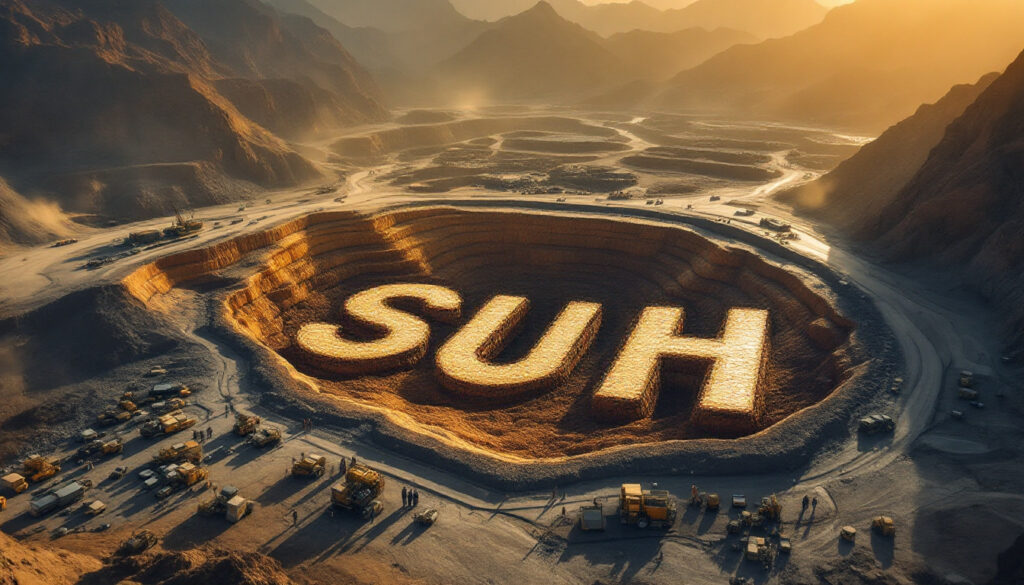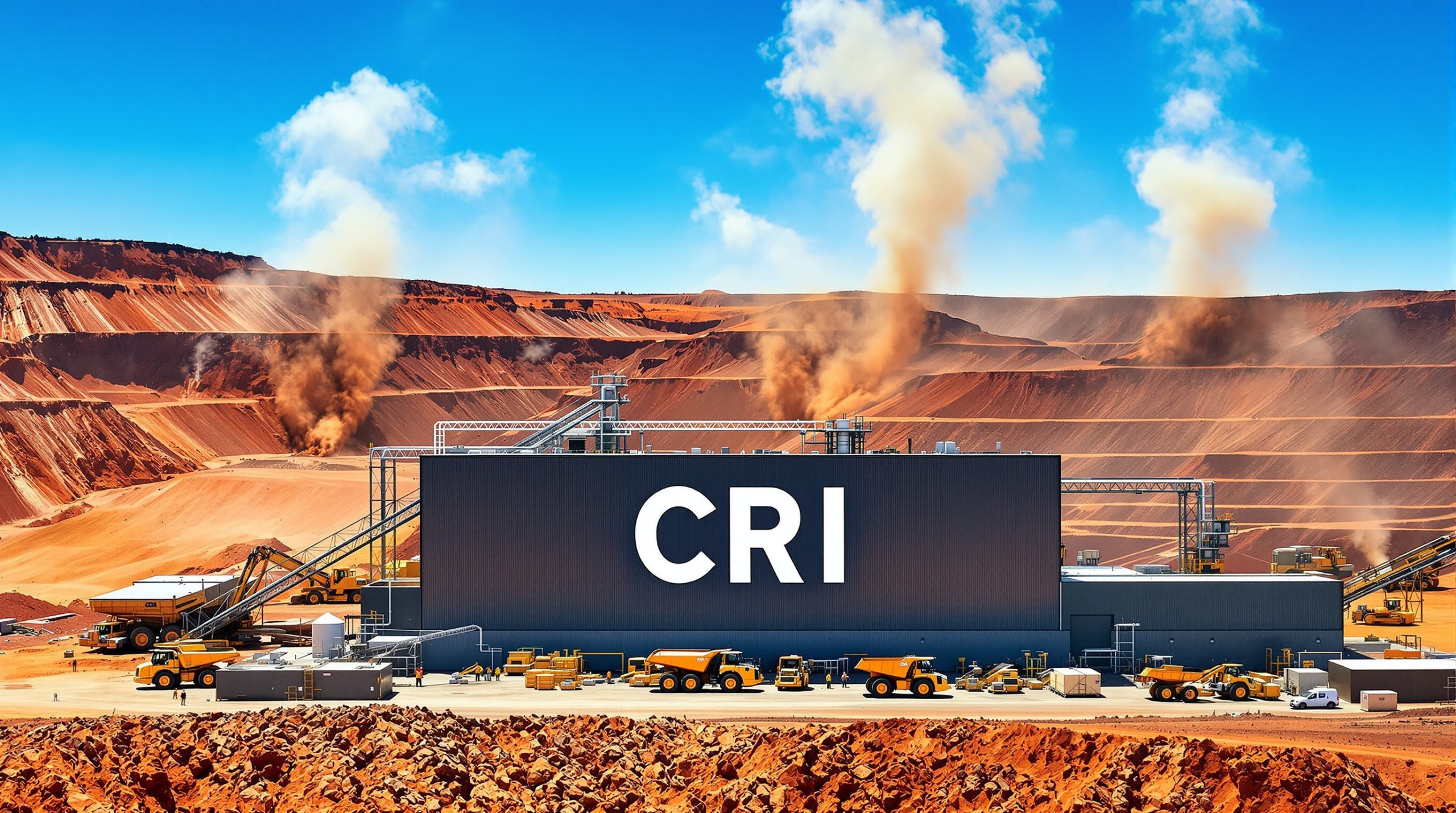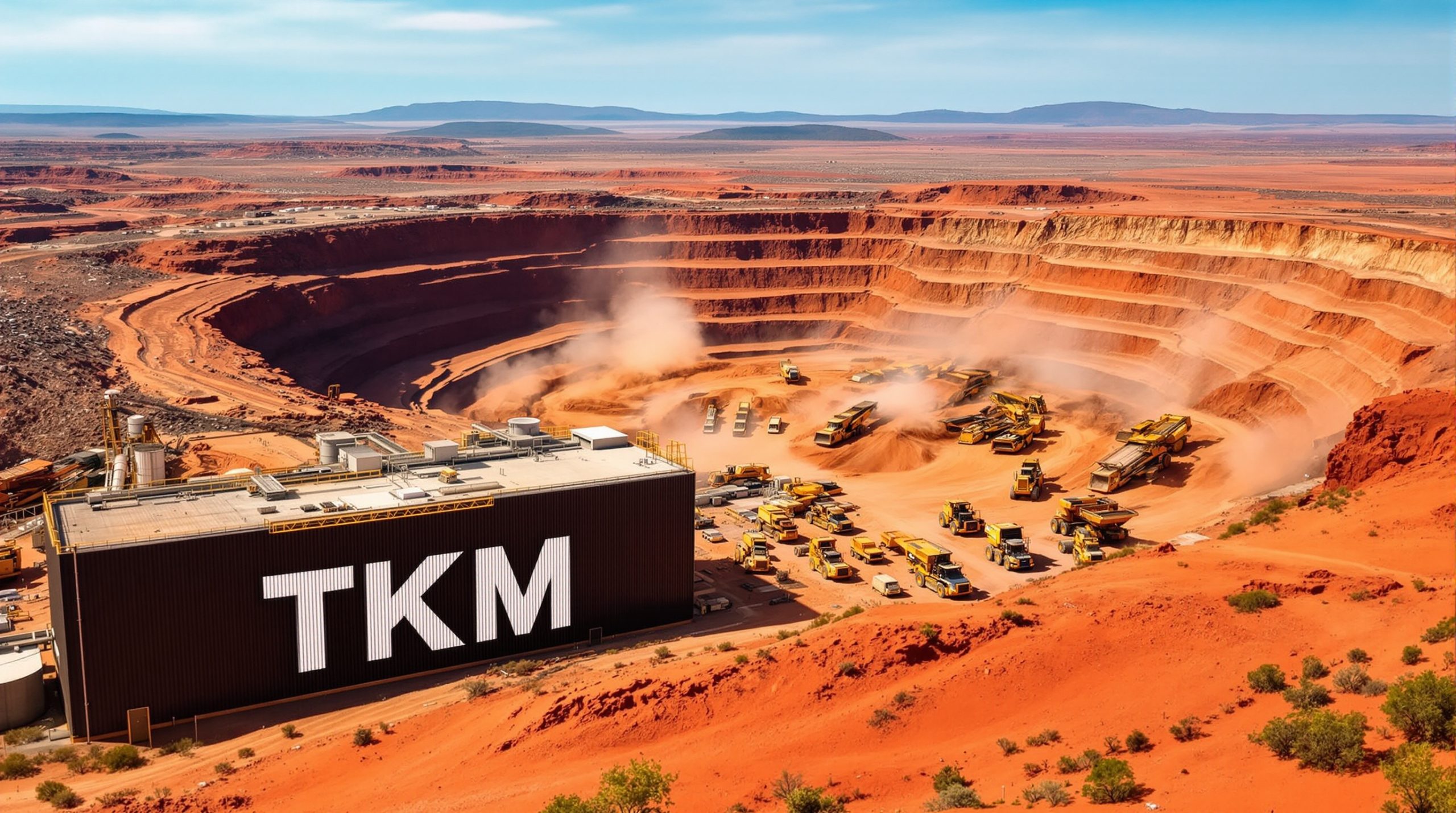MT Resistivity Survey Unlocks Major Copper Potential at Llahuin Project
Southern Hemisphere Mining has announced compelling results from its recently completed Magneto-Telluric (MT) geophysical survey at the Llahuin Copper-Gold Project in Chile, potentially mapping the path to a significant porphyry and epithermal mineral deposits system.
Large-Scale Target Confirmed with Multiple Techniques
The newly completed MT geophysical survey has established a clear correlation between multiple exploration datasets at the Curiosity Copper Target:
- A large low-resistivity anomaly extending over 1,400 meters below surface
- Strong alignment with previously identified litho-geochemical modelling
- Correlation with Induced Polarisation (IP) data
- Surface geochemistry anomalies
- Early-stage drilling that intercepted copper-gold-molybdenum mineralisation
The size and configuration of this MT resistivity target is remarkably similar to the original MT anomaly that led to the discovery of Atex Resources' large Valeriano porphyry copper-gold deposit elsewhere in Chile, suggesting significant potential at depth.
Technical Validation from Multiple Methods
The MT survey results show a "nucleus" of relatively low resistivity and moderate IP response, surrounded by more intense IP response and higher resistivity. This geophysical signature is consistent with porphyry copper systems that feature:
- A central zone with interconnected veinlets of copper-rich sulphide mineralisation
- An outer halo of predominantly disseminated pyrite mineralisation
- Magnetite-destructive alteration at shallow depths
- Possible deeper magnetisation increases
Early drilling results that support this model include:
- 23LHRC038: 164m at 0.16% CuEq from 2m
- 23LHRC039: 106m at 0.13% CuEq from 28m (including 2m at 1.45% CuEq from 168m)
Understanding MT Resistivity Surveys
Magneto-Telluric surveys measure natural variations in Earth's magnetic and electric fields to identify subsurface resistivity contrasts that may indicate mineralisation. Low resistivity zones (measured in ohm-meters) often correspond to areas with interconnected sulphide minerals—precisely what explorers look for in porphyry copper systems.
MT surveys function by recording and analysing electromagnetic waves that naturally occur from solar activity and lightning strikes. These waves penetrate the Earth's surface at different depths depending on their frequency. By measuring how these waves are affected by subsurface structures, geophysicists can create detailed models of resistivity variations at depth.
The technique is particularly valuable for deep exploration because:
- It can detect resistivity contrasts at depths exceeding 2,000 metres
- It works in areas where other geophysical methods might struggle
- It provides high-resolution data in three dimensions
- It can differentiate between different types of mineralisation based on their electrical properties
In porphyry copper systems specifically, MT surveys are effective because the sulphide minerals (like chalcopyrite, bornite and pyrite) that contain copper typically have significantly lower resistivity than surrounding rocks. When these minerals form interconnected networks within the rock—as they often do in economically viable deposits—they create distinct low-resistivity anomalies that can be detected and mapped.
The MT survey at Llahuin penetrated to depths exceeding 2,000 meters, significantly deeper than conventional geophysical methods, helping to identify what appears to be the core of a potentially large porphyry system.
Immediate Next Steps
Southern Hemisphere Mining plans to test this compelling target with three to six deep drill holes, with the first planned to a depth of approximately 1,400 meters. This initial hole will be collared from an existing drill pad and is designed to intersect both the MT resistivity anomaly and the previously modelled geochemical target zones.
The company has already identified the precise collar location for the first deep hole, which will target the central portion of the anomaly where the resistivity readings are lowest. This strategic location maximises the chances of intersecting potential copper market potential at depth.
Investment Significance
This exploration breakthrough significantly enhances the growth potential at Llahuin beyond the existing resource of 149 million tonnes measured and indicated at 0.41% copper equivalent. The Curiosity target represents a potential step-change in scale if proven through drilling.
Chairman Mark Stowell emphasised the significance: "The new Magneto-Telluric 3D inversion model outlines an area of low resistivity, extending over 1,400 metres below surface, which, reinforced by our geochemistry and shallow drilling results, demonstrate Curiosity's potential to host a significant copper-gold porphyry deposit."
The identification of this substantial MT resistivity anomaly adds considerable value to Southern Hemisphere Mining's copper potential, as it suggests the possibility of a much larger mineralised system beneath the currently defined resources. If confirmed by drilling, this could substantially increase the overall resource base and extend the potential mine life of the Llahuin Project.
Why Investors Should Follow Southern Hemisphere Mining
Southern Hemisphere Mining represents a compelling gold market investment opportunity for several reasons:
- Established Resource Base: The company has an existing 169Mt resource (including inferred) at 0.40% CuEq at Llahuin
- Major Discovery Potential: The newly identified Curiosity target could significantly expand the project's scale
- Strategic Location: Chile is the world's leading copper-producing country with excellent infrastructure
- Multiple Assets: The company also holds the Los Pumas Manganese Project with 30.3Mt at 6.24% Mn
- Experienced Team: Management with a track record of discovery in South America
With copper demand projected to significantly increase due to electrification and renewable energy trends, and Chile's position as the premier global copper jurisdiction, Southern Hemisphere Mining's advancement of the Llahuin Project comes at an optimal time for investors seeking exposure to major sustainable mining practices.
The Southern Hemisphere Mining copper potential is further enhanced by the current global market dynamics. Copper prices have shown resilience despite economic uncertainties, driven by long-term supply constraints and growing demand from renewable energy and electric vehicle sectors. The company's focus on copper exploration in Chile positions it advantageously within this market context.
The technical validation from multiple geophysical methods, combined with previous drilling results and surface geochemistry, provides a strong foundation for the company's upcoming deep drilling programme. Investors should monitor the results of this programme closely, as positive outcomes could lead to a significant revaluation of Southern Hemisphere Mining's copper potential and overall high yield investment position.
Looking for the Next Major Copper Discovery?
Discovery Alert's proprietary Discovery IQ model instantly analyses ASX announcements to identify significant mineral discoveries with substantial growth potential, helping investors get ahead of the market. Explore how major copper discoveries have historically delivered exceptional returns by visiting the Discovery Alert discoveries page and start your 30-day free trial today.




